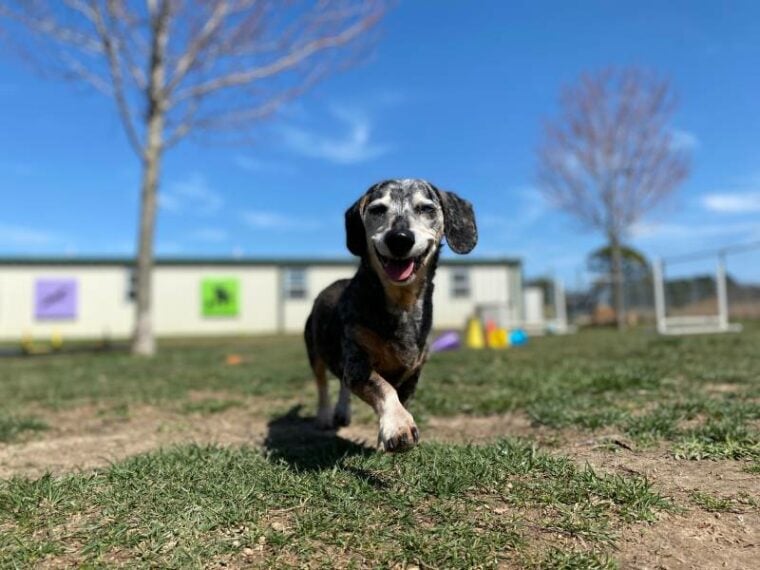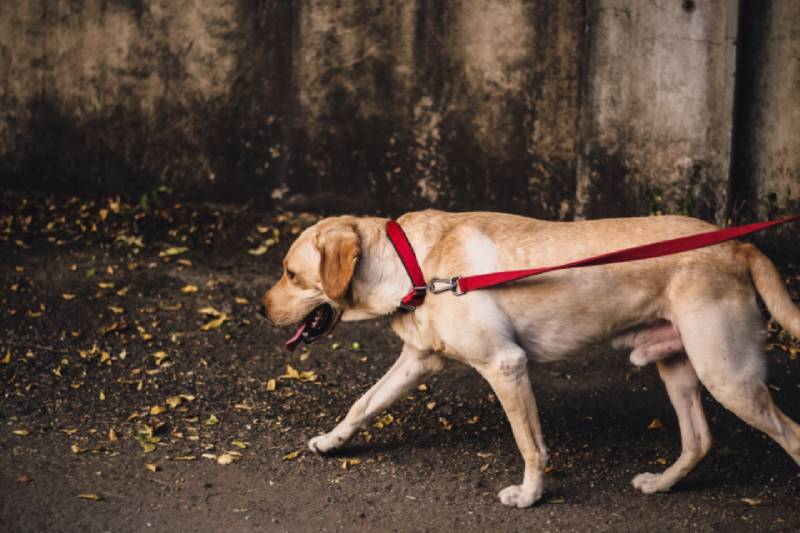
If you’re thinking about adopting a new furry friend, you’re most likely envisioning a puppy. But puppies are hard work and are more expensive to adopt than adult dogs. Maybe your season of life simply won’t tolerate middle of the night barks and frequent potty breaks, not to mention the frequent vet visits and multiple rounds of shots. Some people may be discouraged from buying a senior dog because they fear they’ve already missed out on so much of their lives, but the truth is, you could have years left with your new friend. Here are 8 benefits of adopting a senior dog and leaving the housetraining to someone else.
The 8 Benefits of Adopting a Senior Dog
1. They Need You
Okay, puppies need you too. But senior dogs are often abandoned due to medical expenses that their owners can’t afford or are surrendered in the later stages of their life because their owners found themselves in a hard season. Like senior humans, elderly dogs need someone who will care for them, keep them company, and make sure all of their needs are met.

2. Seniors Are Less Likely to Get Adopted Than Puppies
Most people go to an animal shelter seeking a puppy. According to the ASPCA, only 25% of seniors will find their furever home, compared to 60% of puppies1. That means 75% of surrendered older animals will spend their final years in a shelter instead of on a sofa.
3. Adopting a Senior Dog Gives Them a Good Home to Spend Their Golden Years
At this stage in their life, a dog could’ve spent all of their years in traumatic situations or could’ve had a lovely life until one day their owners couldn’t keep them for some reason. Rescuing a senior dog either provides them with the comfort they’ve never had or reassures them that they’re still loved.

4. Puppy Bills Are Already Paid
Bringing a new puppy home stacks up to quite the bill. Not only are the adoption fees higher, but you also need to visit the vet often over the next few months to follow up on multiple rounds of shots. Also, puppies are more likely to cause you extra expenses such as replacing shredded carpets, chewed thresholds, or even emergency vet visits for swallowing inappropriate objects such as shoelaces and hair ties.
5. Seniors Are Usually Housebroken
Usually, senior dogs from the shelter won’t pee all over your floor. However, there are obvious exceptions to this rule, such as issues with incontinence or possible reversion of potty training due to trauma. If you adopt a senior who struggles to hold their pee, talk to a vet. You might consider doggie diapers if it’s a medical issue rather than a behavioral reaction.
6. You Won’t Have to Walk the Dog (as Much)
If the idea of dancing around a dog park for a couple of hours a day doesn’t sound exciting, you’ll be thrilled to know that senior dogs would probably prefer to take a brief walk and then chill on the couch with you for the rest of the day. Senior dogs don’t need as much exercise as younger pups, but they should still receive at least 30 minutes of low-impact exercise each day. It’s important to maintain your senior dog’s physical fitness. Keeping them healthy can improve their quality of life and potentially lengthen it. Talk to your vet if your dog has any medical needs that might impede exercise to formulate a fitness plan that suits them.
7. Seniors Have Relatively Fixed Personalities
A puppy is like a box of chocolates: you never know what you’re going to get. And that’s a major reason why puppies are often rehomed. They can appear absolutely angelic at a young age but grow up to be a living terror. Let’s be clear, we’re in no way advocating for you to surrender your disobedient dog. There are multiple ways to train even the unruliest pup, and there’s always hope. However, if you adopt a senior dog, it’s nice to know that they’ve already gone through their adolescent phases, so what you see is essentially what you’re going to get.
8. Elderly Pets Are Less Expensive to Adopt
Shelters often rehome senior animals at a discounted rate to encourage people to take them home. If you’re a senior yourself, you might qualify for a double discount since many shelters across America give further discounts to senior citizens. Your retirement buddy is waiting for you.
Conclusion
Every dog has their own unique joys and challenges. Senior animals are often perceived as being high-risk, but that’s not necessarily true. With love and proper care, you could have several more healthy years with a senior animal. Plus, you don’t have to bother with the many worries and costs that are bundled with puppyhood. Adopting a senior dog has several special benefits for them, such as a caring environment to happily spend their golden years, as well as for you since they tend to require less maintenance.
If you’re considering bringing an animal home, honestly evaluate your time, personality, and prior commitments to see if your lifestyle is best suited for a senior or a puppy. Active individuals who work from home can realistically meet a puppy’s needs, but people who work in-office or who don’t exercise much would probably appreciate a low-maintenance senior dog who can chill with them when they’re off duty.
Featured Image Credit: Ryan Brix, Shutterstock








